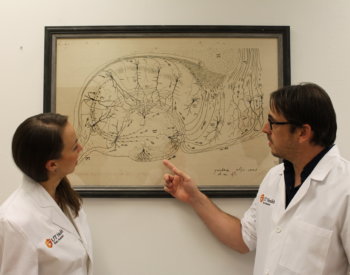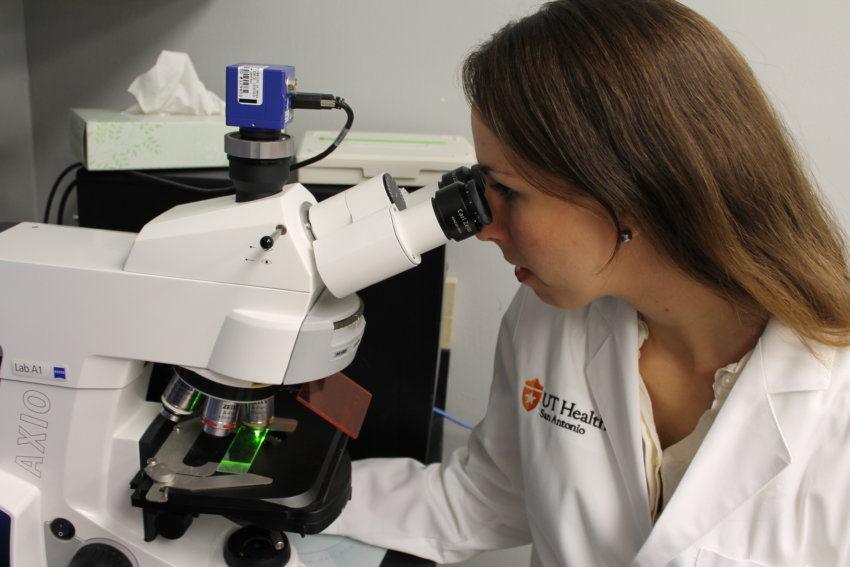Jennifer Donegan, Ph.D., and colleagues at UT Health San Antonio describe a novel, experimental approach to treating schizophrenia in the journal Nature Communications (published June 27). If developed into a human therapy, the new strategy could be a significant improvement on existing drugs that don’t treat all types of schizophrenia symptoms and cause undesirable side effects, researchers said.
The San Antonio team is targeting the hippocampus—a center of learning and memory in the brain. Dysfunction of the hippocampus is associated with many psychiatric and neurological diseases including schizophrenia.
Human research has shown that the hippocampus is hyperactive in schizophrenia, Dr. Donegan said. It is like a car engine that idles too high in park.

“Activity in the hippocampus is primarily controlled by a balance between excitatory and inhibitory neurons, which are cells of the central nervous system,” Dr. Donegan said. “We think that the hyperactivity observed in schizophrenia patients is caused by a loss of inhibitory cell function.”
Studying rats that model schizophrenia, the team used gene therapy techniques to increase the inhibitory neurons in the hippocampus. This not only reduced delusions and hallucinations, but also improved cognitive function in the rodents.
“The main finding is that increasing inhibitory function in the hippocampus can improve multiple schizophrenia symptoms and may be a more effective treatment strategy than the drugs we currently have available for schizophrenia,” Dr. Donegan said.
“We also identified the neural pathways from the hippocampus that are responsible for different symptom types in this disorder,” she said.
The prevalence of schizophrenia in the United States and internationally is difficult to measure for a variety of reasons. Various studies that included household-based surveys, clinical diagnostic interviews and medical records have placed the estimated prevalence in the U.S. at between 0.25% and 0.64%, according to the U.S. National Institute of Mental Health (NIMH). This is approximately 800,000 to 2 million Americans.
Schizophrenia is one of the 15 leading causes of disability worldwide, according to the NIMH.


